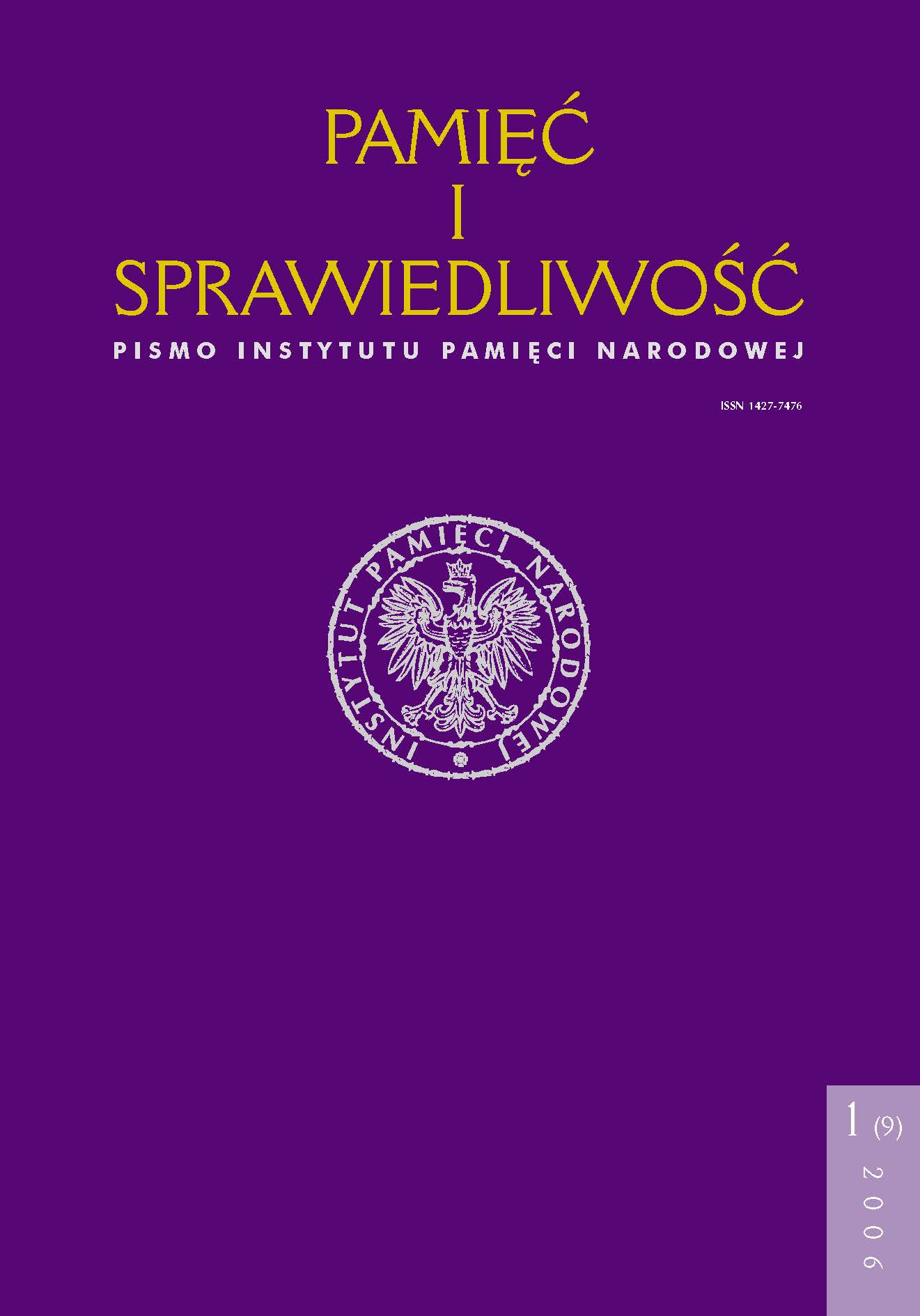Podziały narodowe w obrębie bloku radzieckiego: Polska i Niemcy Wschodnie 1945–1962
Pamięć i Sprawiedliwość, Tom 9 Nr 1 (2006), strony: 13-41
Data publikacji: 2006-06-30
Abstrakt
The Germans from GDR and the Polish were like brothers born into a Soviet family; they could quarrel, but they could not leave it. They were curring favours of the father, carrying out their own policy according to their own interests which conflicted with each other. The result of such activities was a “cold war” of misunderstanding and distrust. There were moments of both thaws and crisis, but there were incompatible national differences between communist party of the GDR and the Polish United Workers’ Party (PZPR). The true reconciliation of the two nations was not possible also because of the lack of legitimization of the Polish and DDR governments. The ups and downs of the Polish-
DDR relationship were of course connected with the policy of the Soviet Union and
the cold war events. Understanding the strategic meaning of the GDR and Poland for the Soviet Union, the Kremlin could not let the Polish-German relationship transform into the open struggle, which nearly happened in 1956. Communists from the GDR and Poland let
alone would by no means lead to the situation similar to the Tito–Stalin conflict of the end of the fourties or collapse of the Soviet-Chinese alliance in the beginning of the sixties. The tensed relationship of Poland and GDR after the second world war is another proof for the fact that the communist parties of Eastern Europe could not exchange
national loyalty for marxist internationalism. Even the leaders and the rank and file of SED and PZPR were sworn nationalists. The fast collapse of the Warsaw Treaty after the 1989 showed the malfunctions of the socialist fraternity. In the current article three of the most controversial issues are discussed: the matter of the border between Poland and Germany, the ideological differences connected with choosing the correct way towards socialism and the controversy of the approach towards the West Germany.
 Język Polski
Język Polski
 English
English
 Deutsch
Deutsch
 Français (France)
Français (France)
 Italiano
Italiano
 Русский
Русский


 PDF
PDF
